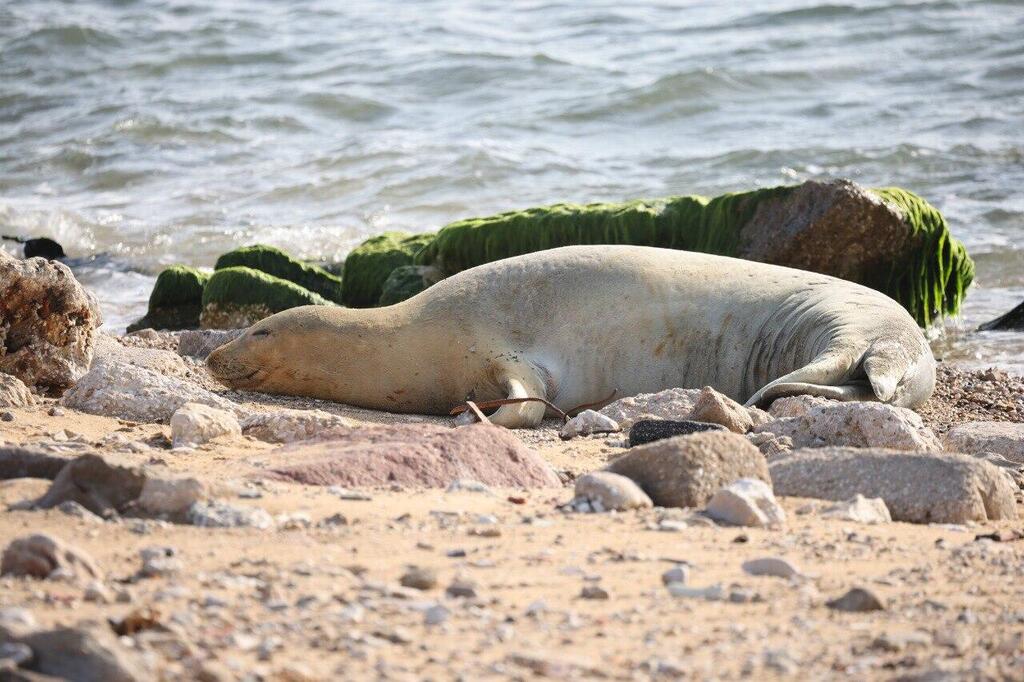The seal known as Julia, who made her way to Israeli shores last Friday for a rare visit, was discovered by beachgoers who then tried to push her back into the water. A cyclist who witnessed the event reported it to the police who in turn, alerted the Nature and Parks Authority.
Her name was given to her by a child named Mohammed, who was on the beach when she was found. Late on Monday, Julia went into the water but made her way back to shore on by Tuesday.
Volunteers and workers of the Nature and Parks Authority have been guarding the sea mammal after kids threw rocks at her. Julia's watchers are keeping a close eye from a few yards away.
Guy Levian, an inspector with the authority, explained that while people may want to approach her, it is vital that the seal maintains her time of rest. If approached, she might possibly be traumatized so much so that she would never come back.
Since Julia is here to stay, at least for the time being, the decision was made to increase the number of people who are watching over her. "We actually put up fences around the area, but people are still trying to approach. They are relentless until they are warned that they may be fined if they don't keep away."
One of those volunteering to watch over Julia came all the way from the Golan Heights, in the far north. Itay Myers, volunteers for a wildlife organization. "Seeing a Neomonachus seal in the wild is a dream come true," he says. "As soon as I heard that it is possible to help watch over her, I immediately signed up."
Julia resting on central Israeli shores
(Footage: Guy Levian, Nature and Parks Authority)
Long thought to be severely close to extinction, the Mediterranean Monk seal, scientifically known as Neomonachus, is one of the dozen rarest mammals that still exist in the world. The population is currently 500 strong, which is a dangerously low number when you consider that this mammal has a rather slow reproduction rate of a single offspring every two to three years.
Julia was first observed as early as 2007 on the shores of eastern Turkey. She occasionally frequented Lebanese shores as well.
"We are witnessing a type of recuperation following her long journey, which is a good sign," Dr. Mia Elasar, who supervises seal research in Israel, said. "We are hopeful that soon enough, she'll be able to recuperate sufficiently in order to return to the places where she has more room to maneuver, such as the Turkish shores."




